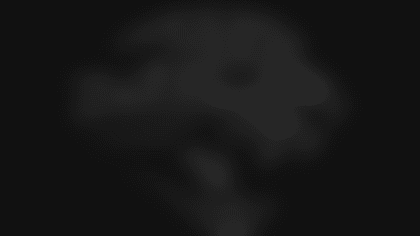Jaguars athletic trainer/physical therapist Mike Ryan is in his 22nd season in the NFL and is one of 14 staff members who have been in Jacksonville since the inaugural season. Ryan spends the majority of his time caring for the players at Jacksonville Municipal Stadium, but he also tests his own limits away from the office. He sat down with jaguars.com today during his free time.
*You are one of 14 staff members that have been here from the beginning. Did you ever imagine you would be here ready to enter your 15th season? *
"I did. I was the assistant athletic trainer/physical therapist for six years with the New York Giants. When I came down here I was really hoping it would be a long-term stay because I loved the area. I felt like I was coming down for a career not a job. It's been a fun ride and there are so many fun things to look back on. Even the hard times were fun. The winning is great and I love winning, but there are so many other aspects to my job above winning and losing. It makes so many things about this job so rewarding."
*You get to see the daily battles these players go through to get on the field each Sunday and the time spent through the week getting their bodies ready. *
"There are so many stories. I love looking back, I just went through some old media guides the other night and seeing the names. The guy might not have had a lot of rushing yards or a lot of tackles, but the story and the human interest in knowing what that guy put into it to make it back on the field. A great story on our roster right now is Greg Jones. What he went through with his knee injury his junior year of college and to come back and make it in the NFL is an amazing story in itself. I can still remember the tackle out here on the 40 or 45-yard line where the guy took his knee out and blew out his other knee. Here is a guy that had to go through that again, going into the prime of his career. Greg is a quiet guy, not someone who is going to be out waving his own flag. To see what he went through and the work, blood, sweat and tears he put into his rehab, not just to make it back but be better than he was before. Here's a guy who had two significant knee injuries, one before he got here and one when he got here. They don't put that in the paper but that is something Greg should be very proud of. I feel very fortunate to witness it, be a part of it and see him come through it. That is a human interest story in my book."
*Have the players changed a lot the past 15 years? *
"They change. These guys are a lot smarter now. They are coming in a lot more knowledgeable about nutrition and what they want to do to recover. They have a lot more exposure to more holistic type healing components of medicine. They are getting more exposure to that in college and a lot more of these guys as they prepare for the combine are going to some of these high-level training programs where they get exposed to a lot of those things. They are much more knowledgeable and it's easier to get the players to do the things they need to do. When we say we are going to add in yoga or acupuncture or other types of visualization training to their rehab program then it's not so crazy to them. I can tell you one of the biggest advances I have seen in players is six years ago you couldn't find 10 players in the locker room that knew anything about computers. Now you have guys that can write computer programs, know a computer inside and out, can link their phones to their computers and do some amazing stuff. Before they would come to me and ask if I know any IT guys. We had guys in this company that used to set up the players computers at home because the players couldn't do it."
*Are we done with the fast food generation? I remember Fred Taylor telling the rookies last year about his eating habits when he first came into the league. *
"It still happens but I think now they know they are making the wrong choice. The convenience is still there and there is a lot more to choose from now. You go down Southside Boulevard and it's like a gauntlet of fast food. They realize they shouldn't and it's our job to educate them to why they shouldn't and what are the better alternatives."
*You have completed five Ironman Triathlons and your sights are set on July when you attempt number six in Austria. How has the training been for this race? *
"I leave here on July 1 and the race is on July 5. Right now it's just getting a lot of miles in over the next month. The last three weekends I have biked over 100 miles with a run after that. The next day it's about a two and a half hour run with a swim after that. During the week it's harder to get a lot of the big miles in. I get up early at 4:15 in the morning to work out, get whatever I can done in the morning before I get to work. Once I'm here I can't work out at lunchtime because there are a lot of things going on. I have to plan my workouts around my job and my family because both of them are very important. Over the next two weeks I will increase my mileage. By the third week of June, I will have maxed out a long bike ride of about 125 miles. My long run will be 22 to 24 miles."
*Did I hear you rode your bike to Gainesville a couple of weekends ago? *
"Yes. That was 101 miles through Palatka. It's beautiful this time of year."
*You said your goal for the race is 10 and a half hours. Can you do it? *
"Sure if everything goes well and I stay healthy. I have had some injuries along the way and I have adjusted well. I take a lot of things I use with the players and I apply it to myself."
*You spent two weeks last spring working as an athletic trainer/physical therapist at the United States Olympic Training Center in Colorado Springs, working with Olympic athletes as they prepared for the 2008 Summer Olympics in Beijing, China. What was that experience like for you? *
"That was very impressive even though I have been around high-level professional sports for 25 years. It was two or three weeks before the Olympic Games. I was with the swimmers, Greco Roman wrestlers, triathletes, runners, fencing, volleyball, boxing, most of the major sports there. They are working harder than ever, the commitment and dedication to represent their country was phenomenal. They weren't talking about millions of dollars. I went out to dinner one night with the athletes and they were comparing what they make a week. One group of athletes was making three-hundred dollars a week and one group was making four-hundred dollars a week. You thought the group that was making four hundred were the richest guys around. It's to represent their country, to get on the big stage and show what they can do. The medical staff out there was exceptional and the care that they provided, the dedication at all levels from the coaches and what these athletes put themselves through. You are not talking about 16 games a year. You are talking about one Olympics every four years. There was one athlete there I worked with who was a powerlifter and she had spent eight years of her life at the Olympic Training Center to make the Olympics, since she was 11 years old. She wasn't selected and she was down in the dumps a few days. I was working on her one day and we were talking. She said, 'I'm going to do it. I'm going to be in the next Olympics. I'm going to be in London in 2012.' She said she felt sorry for herself for three days. Here she was living in the training facility, training day in and day out for that one dream. She put eight years into it and she felt sorry for herself for three days. She was back focused, had a smile on her face and looked me right in the eye and said, 'I'm going to be in the Olympics in 2012.' That is dedication, focus, discipline and commitment."
You are caring for more than 80 players right now. How do you acclimate yourself with this rookie class and stay up to date with the veterans?
"Sometime or another they are going to be in here, whether it's for treatment or preventive care. I start by getting to know them. That is difficult because they don't come in here a lot. Where are they from? What are their interests? I look through the media guide. What is their background? I think one thing is people like to talk about themselves and I like to learn about people. This is a neat environment because you have people from all walks of life from different parts of the country, different backgrounds and different educational experiences. Learning about them is one of the rewarding parts because I want to know about them as a person before I know about their flexibility or their surgical history. It's important they get to know us as well. When a guy is hurt and he's lying on the field and he has a serious injury, I'm usually the first guy out there. When he looks in my eyes I want him to know who I am. I want him to trust me. If I tell him everything is going to be alright and I'm going to help him he needs to believe that. If you have a stranger looking in your eye that is not always reassuring."














